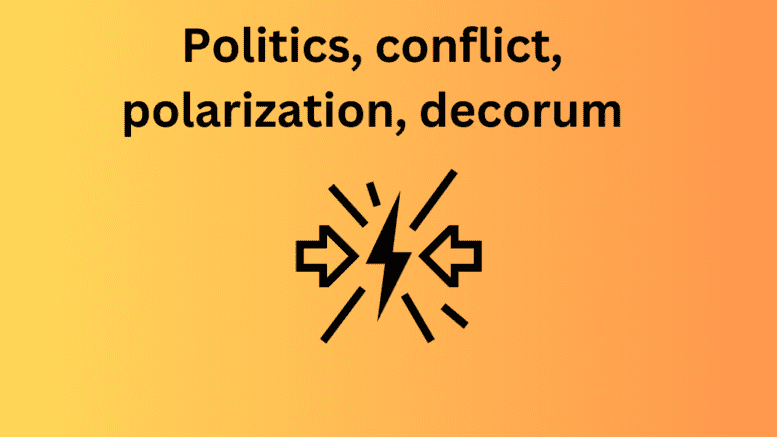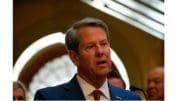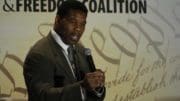by Jay Bookman, Georgia Recorder [This article first appeared in the Georgia Recorder, republished with permission]
June 15, 2023
Last week, Atlanta City Council members were threatened with physical violence over their votes in support of the controversial “Cop City” proposal. That’s indefensible, and it seriously undermines whatever moral standing that project opponents may have claimed to have.
Surely, whatever your stance, we can agree that such threats have no place whatsoever in public life. Surely we can agree that we do not resolve our differences through violence.
Or maybe not.
Consider this statement by Kari Lake, the failed Republican candidate for governor of Arizona and the keynote speaker at last weekend’s Georgia Republican Convention in Columbus.
“I have a message tonight for Merrick Garland, and Jack Smith, and Joe Biden. The guys back there in the fake news media should listen up as well, this one’s for you,” Lake said, pointing dramatically to the back of the convention hall. “If you want to get to President Trump, you’re going to have to go through me, and you’re going to have to go through 75 million Americans just like me. And I’m going to tell you, most of us are card-carrying members of the NRA.”
“That’s not a threat,” Lake said. “That’s a public service announcement.”
I’m not sure I see the functional difference between the threats against Atlanta city council members and Lake’s “public service announcement.” In fact, in some ways Lake’s rhetoric is even more dangerous. It was made in public, not by fringe activists but by a prominent public figure, in a prominent public setting, to members of the most powerful political party in the state, and it drew enthusiastic cheers and applause from the crowd of Georgia Republicans.
Imagine the reaction if that same rhetoric had been delivered by a major figure in the black community, before a black audience, warning the government not to arrest a black political figure because, well, “we have guns and we might use them.” What is accepted as almost run-of-the-mill language among today’s white conservatives would draw a very different response under different circumstances.
A couple of days later, Georgia Gov. Brian Kemp was interviewed on camera by Robert Costa of CBS News. The appearance was part of Kemp’s campaign to position himself as a voice of a saner, more responsible Republican Party at the national level. Costa read Lake’s statement to Kemp, and twice invited the governor to condemn or at least distance himself from such rhetoric.
The comments had been made in Kemp’s state, before a convention of Kemp’s fellow Republicans. But twice, Kemp refused to even slightly criticize Lake. It shouldn’t be that hard. It shouldn’t be difficult to condemn threats of gun violence against government officials just for doing their jobs.
Contrast Kemp’s reluctance to say what obviously needs to be said in Lake’s case with his eagerness to label protesters in the “Cop City” controversy as “domestic terrorists.” Protesters who engage in violence should of course be arrested and prosecuted for that violence, but Kemp and others, including local officials, have applied the term “domestic terrorist” extremely broadly, using government power not just to keep protests peaceful but seemingly to try to squelch them altogether.
Violence is not a legitimate form of political expression. If you’re not satisfied with how things are going through the ballot box or jury box, reaching into the ammo box is not an option. Everyone in public life, especially those who offer themselves for leadership, should agree with that basic proposition and condemn anyone, ally or opponent, who suggests otherwise.
Georgia Recorder is part of States Newsroom, a network of news bureaus supported by grants and a coalition of donors as a 501c(3) public charity. Georgia Recorder maintains editorial independence. Contact Editor John McCosh for questions: info@georgiarecorder.com. Follow Georgia Recorder on Facebook and Twitter.





